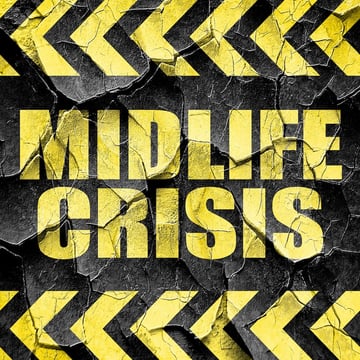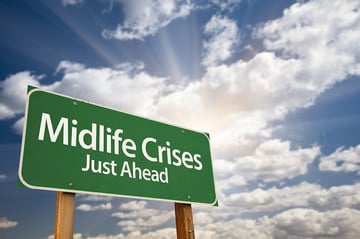 The Rest of the Story
The Rest of the Story
Jose
Jose’s midlife crisis hit a tipping point when he came home late one night and found his 11-year-old daughter sitting on the couch. She was up far later than her bedtime. When he asked why she was still up she said she was scared and trying to figure out how to make him love them again.
Jose had been so consumed and laser-focused on making things new and better for himself that he hadn’t been willing to stop and look at what he was doing to his family. Something that's typical for men going through midlife crisis.
When he sat down with his daughter to explain that he did love them, she got angry.
“No you don’t! You’re never here, you look different, and I heard mom saying on the phone that you have a girlfriend. You don’t love us anymore and you’re ruining our family!”
And with that she ran to her room and slammed the door.
When Stephanie came out to see what was going on, Jose couldn't look at her. He didn’t know what to say. He looked around at his house and felt an overwhelming sense of emptiness. He hadn't intended to hurt his family, he just wanted to be happy. But he now realized he had just made a huge mess of everything.
Like nearly all men in midlife crisis, Jose had to hit a new low before the light bulb finally went off in his head and he began to see what Stephanie had been saying for months, maybe he really was having a midlife crisis.
"Now what do I do?" he sat and wondered.
Stephanie
Stephanie had heard Jose come in – late as usual these days. She wondered why he even bothered. He had been sleeping in the guest room for weeks, some nights he never came home, and it felt like he was hardly ever there.
His new long-haired look was embarrassing, and she had heard through one of his co-workers that he was the losing respect of people at work. His behavior and secrecy also made her suspect he was having an affair, even though he continued to deny it.
As sad and lonely as she felt, and as much as she wanted to curl up in her own sadness, she was too worried about what his behavior was doing to their kids.
After searching for answers online she was convinced he was clearly dealing with a midlife crisis, but it was just as clear that he couldn’t see it nor the damage he was doing. His midlife crisis was causing the family to fall apart.
Anna, their 11-year-old didn't want to leave the house anymore. She was quieter than normal, but also strangely focused on trying to make things “better.” She cleaned the house constantly and wanted everything to be “how daddy likes it.”
Carlos, their 14-year-old, who had always taken pride in his school work, was now failing tests and blowing off homework. Stephanie also feared he had started smoking pot.
Stephanie was struggling to keep herself together, while also keeping things stable for her kids and trying to get them to understand that their dad’s behavior wasn’t their fault. She kept trying to talk about Jose in positive terms, but it was getting harder and harder.
When she heard Anna yelling and slam her bedroom door, she came out to see what was going on. Jose was there, sitting alone on the couch, with his head in his hands. For a moment she thought she could see the “old Jose.”
“We need help. You need help,” she told him.
Jose just stared blankly at the wall. Then got up without saying anything and left.
Stephanie thought, "Nothing new here. He still won't talk about it."
But a couple of days later Jose showed up unannounced to help the kids' with homework. Carlos refused, but Anna was thrilled. Stephanie didn't know what to make of it.
A few weeks later, after a couple more strange appearances by Jose, he told Stephanie that he had found a counselor he really liked and was trying to figure himself out.
Jose started to see what he was losing. After talking to Dr. Kurt for a while, he finally accepted that he was having a midlife crisis, but it took several months before he would admit it to anyone else.
It came very close to being too late to repair the damage, but with Stephanie’s cooperation and the help of Guy Stuff, he was able to get himself back on track. Getting things back to normal took time, however. And regaining the trust of not only Stephanie, but of his children as well, wasn’t easy or quick. For a long time they struggled with the fear that he was going to abandon them again.
But Jose stuck with it and now has the reward of his wife and family around him, as well as the happiness he was desperately seeking.
How did he do it? He asked for help.
Does Jose and Stephanie’s story sound familiar? A midlife crisis is a stage of life that hurts and damages all those who are affected by it.
However, getting over a midlife crisis is possible, but it just isn’t easy.













